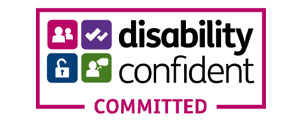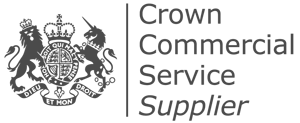How to sell yourself
Going through a recruitment process for a board role, either directly or through a recruitment firm, can be an intimidating prospect if you’ve never done it before. We want to make sure you are as prepared as much as possible so that you have the best chance of success.
Preparing your application
The supporting paperwork required is the same for a Board role as it is for a permanent job – a CV and a supporting statement to get the ball rolling. It’s how you frame your experience, how you create a picture of who you are and what you bring, that will make you stand out.
Boards are very interested in understanding your motivations about why you want to join their organisation, what values of theirs you share, and what personal and/or professional experience you bring that will ensure they are delivering on their strategy.
Your supporting statement and CV – Framing your experience and working out your USP
Job adverts can often read like shopping lists, and you might not feel you’ve gained the required level of experience the Board is asking for; the key is understanding what other experience, qualities and abilities you can draw on that will demonstrate to a Board that you are ready to take on the role.
So how do you work out what your unique selling point or value is to a board? In our professional lives we are used to selling our skills and experience with a focus on outcomes and so the results of our work are easier to quantify e.g., “four years’ marketing experience in a media agency where you achieved, x, y and z.”
You need to think more creatively when creating a Board ready CV and crucially when crafting your supporting statement. Board members read them, and they do matter! They don’t need to be very long, but they do need to give a fuller picture of who you are and what motivates you. No need to replicate what’s on the CV.
Top tips:
- Outline your motivations clearly – why them? What values do you share? What do you hope to get out of joining the Board? It’s a two-way process and they want to know that you will be engaged and ready to contribute.
- Think broadly about where you have gained a wider range of experience and skills; voluntary work you do in your spare time or being part of a school debating society or IT club. That’s valuable experience and shows a clear commitment to contributing to society or your community.
- Think about your personal life or ‘lived experience’ – your unique experiences and insights are invaluable to a wide variety of organisations looking to positively impact on society.
- Your youth is also an experience you can add to a board; you will bring new ways of thinking and seeing things from a different perspective and keep them connected to what the younger generation thinks.
- Ask someone to read your statement and be honest about whether or not your message has come through – this is about you and what you bring and why their Board needs your voice – be a bit bold but make it relevant to their needs.
Preparing for interview
Going for an interview, even if it’s informal, still needs some preparation. Read up about the organisation’s strategy and understand the work/programmes they run so you can link your answers back in a relevant way. Know their values and understand which ones really resonate with you. Have an idea of who is on the current Board and who is interviewing you.
First and foremost, be yourself! Everyone brings their own unique set of life experiences with them, and the Board wants to know who you are and what motivates you. This is your chance to bring to life what you have hopefully covered in your statement; what will they get out of having you on the Board and what do you hope to get out of joining? It’s a two-way process and both sides must feel comfortable that it’s a good fit.
- Why us? What makes you want to give your time and effort to help them further their aims? Be prepared and know their values. Only answer which values genuinely resonate with you and why. A few key ones answered authentically is far better than listing the headings you read on the website but having nothing to back them up.
- What will you bring to the Board? That’s your USP brought to life – what specifically do you bring – your work and personal or lived experience, your unique skills and abilities – it’s a combination of all of them. It doesn’t need to be a list – it’s almost a statement of intent about what insights you will bring to help ensure they’re delivering on their strategy.
- What sort of working environment do you thrive in? These behavioural questions are there to help them understand how to get the best out of you and how you might engage with the rest of the board – are you collegiate and a team player and able to see the bigger picture?
- What issues are affecting young people now? If you are being brought onto the Board as a Young Trustee this could well be something you get asked. Be honest and try and link your answer back to something that’s relevant to the organisation’s aims.
- Have some questions for them – show you are interested, have engaged with the organisation and are motivated!
Unpredictable Times, Unstoppable Leaders
In an age of heightened sensitivity, it’s no surprise that organisations and the people running them can feel as though they are constantly working under an intense public and media spotlight.
Expert Interim Talent: How to Launch Your Portfolio Career
Today's business landscape demands agility and specialised expertise. Discover how to leverage your skills across diverse, high-impact projects, gaining unprecedented flexibility and autonomy. Forget "holding the fort", modern interims are strategic leaders, driving change and delivering results in times of transformation.
Recruiting leaders in perilous times
Leadership appointments have always carried weight, but in the current climate they carry a different kind of exposure. For those of us working at the interface between Boards and candidates, it is clear that the rules of engagement have shifted, and that executive search must shift with them.
ACCREDITATIONS


ESPO is a public sector owned professional buying organisation (PBO), specialising in providing a wide range of goods and services to the public sector for over 40 years. Starfish Search has been awarded a place on ESPO’s Strategic HR Services framework (3S). Services we offer under the framework include: Lot 1, Executive and Managerial Interim Recruitment Lot 2, Executive and Managerial Permanent Recruitment.


Starfish are proud to be certified Disability Confident Committed. This scheme provides employers with the knowledge, skills and confidence needed to attract, recruit, retain and develop disabled people in the workplace.


Crown Commercial Service supports the public sector to achieve maximum commercial value when procuring common goods and services. In 2020/21, CCS helped the public sector to achieve commercial benefits equal to £2.04bn - supporting world-class public services that offer best value for taxpayers. Starfish Search has been named as a supplier on Crown Commercial Service’s Executive and Non-Executive recruitment. Services we offer under the framework include: Lot 3 - Non-Executive and Public Appointments.


Bloom, launched in 2012 is the UK’s leading marketplace for professional services. They provide an end-to-end solution for the procurement, contract management and payment of all professional services, via the compliant NEPRO³ framework. Their public sector clients have access to 20 professional services categories and over 4500 accredited suppliers. Bloom provides swift routes to market via either direct award or mini competition. Starfish is an accredited supplier to BLOOM; our services can be accessed via this framework - Executive and Non-Executive Search and Interim Management.
Join the starfish team
We hire people who bring insight, integrity and ambition to their work. If you’re ready to contribute to shaping the future of leadership and you want to explore our current opportunities please click the link below.
find out more